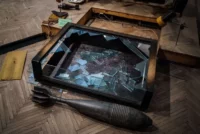
Russia Is Committing Cultural Genocide in Ukraine
Anyone who wants to understand Russian history should ignore Russian President Vladimir Putin. But anyone who wants to understand Putin’s strategic aims should pay close attention to his reading of history. The Russian president’s long lectures and essays on Kyivan Rus and World War II are not random tangents but rather the centerpieces driving his regime’s aggression against Ukraine. The Kremlin’s efforts to impose its reading of history on Ukrainians living under occupation reveal the driving motives of this war, as well as its continued objectives.
Against the backdrop of the uncounted—and uncountable—civilian deaths, mass deportations, and domicide across the occupied territories of Ukraine, it might seem trivial to focus on historical memory.… Seguir leyendo »












